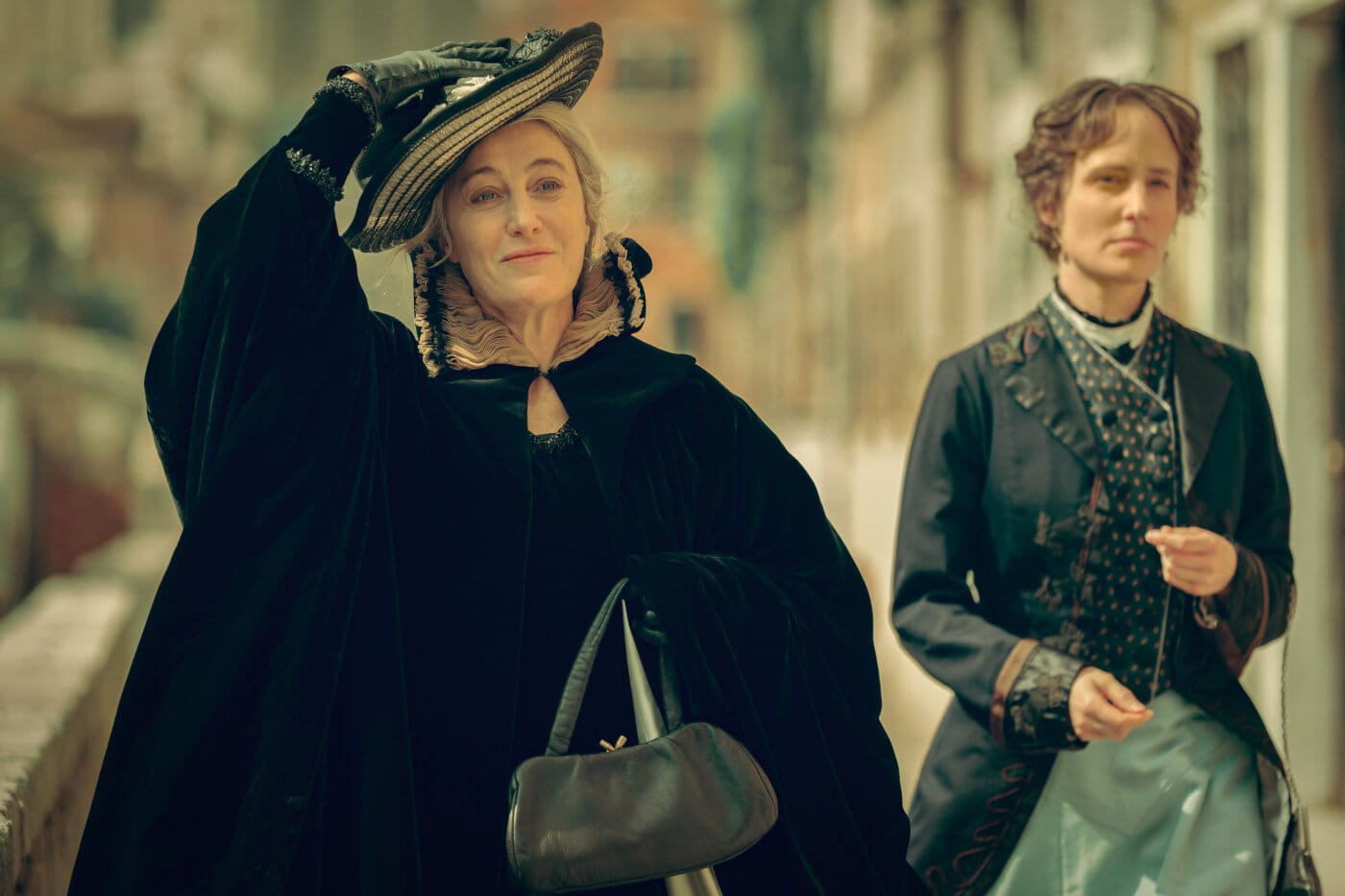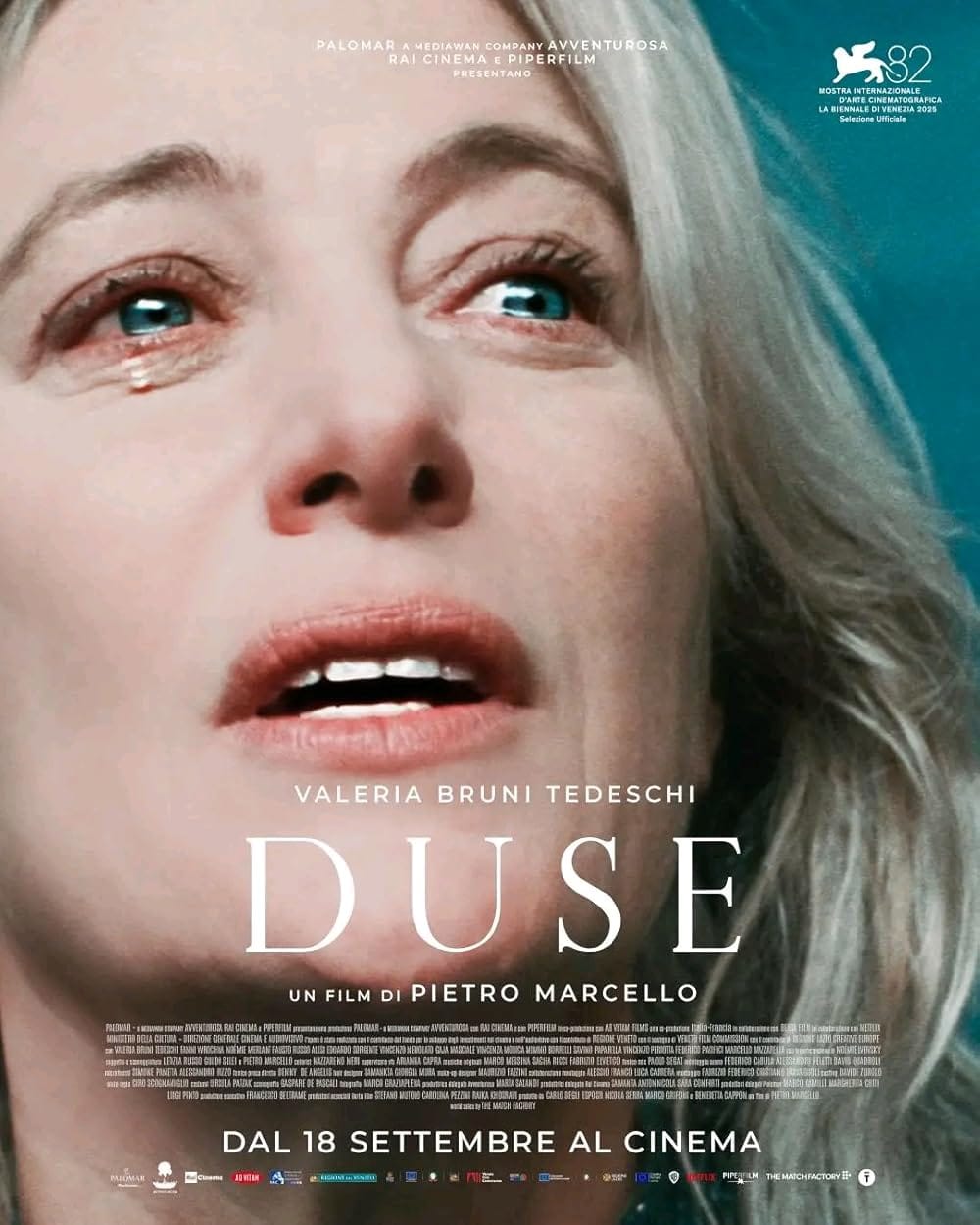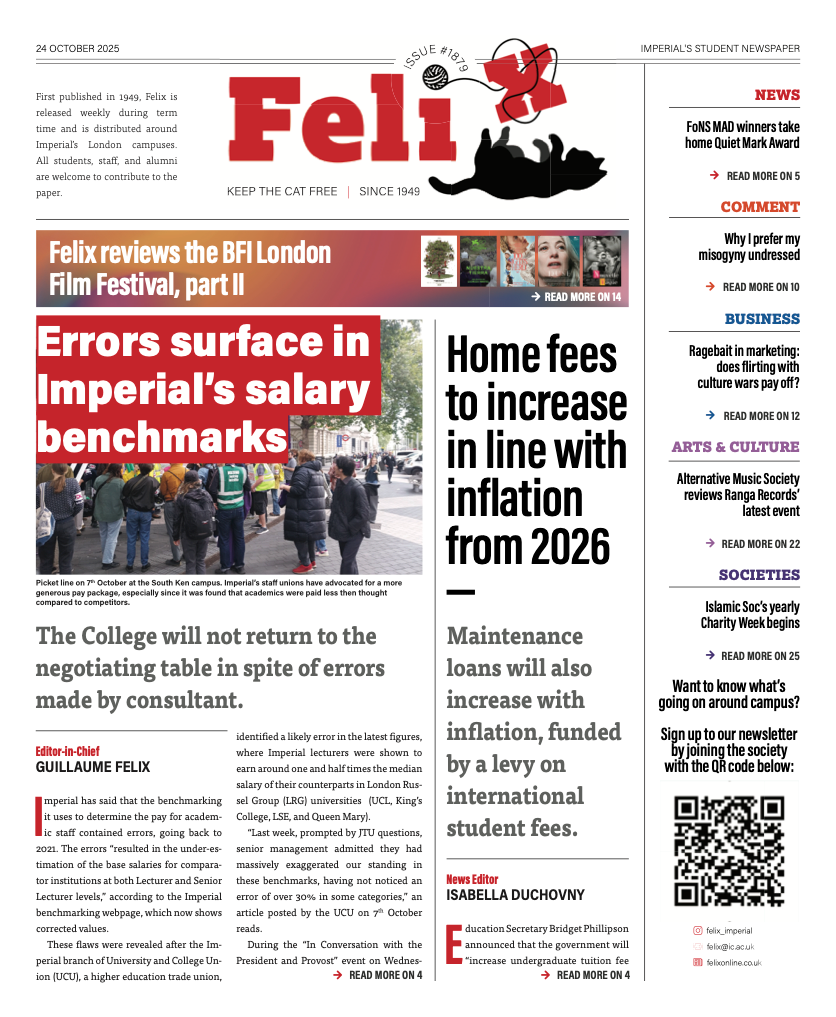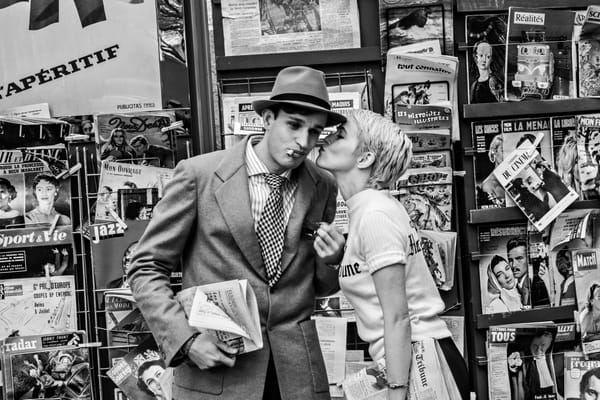Duse
BFI LFF 2025: A tribute or a lavish melodrama?
Pietro Marcello’s Duse is a bold attempt to document the return of retired Italian theatre actress Eleonora Duse, whose life is remembered more through myth than record. Known for performing without makeup and for immersing herself completely in her characters, Duse favoured a naturalistic style marked by deep psychological and emotional nuance. She was widely regarded as the greatest actress of her time and told reporters that she had no life beyond the stage, only the lives she lived in her acting.
Eleonora Duse, performed brilliantly by Valeria Bruni Tedeschi, takes up acting again in spite of ill health, hoping to settle her debts. She is well taken care of by her secretary Desirée. Her initial play, an Ibsen piece, is a success, but her French counterpart, Sarah Bernhardt, instructs that art cannot remain the same both prior to and following war. Following this, Duse insists that art must comfort “the orphans and widows” and all hurt by war. She gives a chance to a young playwright, Giacomo Rossetti Dubois, who was a former fighter and had previously sworn his idolisation of her individually. His work, however, is met with contempt by the public, which is starved for the past and the known, a symptomatic reflection of the conservative mood of the era and of the cultural zeitgeist that antedated fascist victory.

After the failure of the new play, Duse once again falls back on the plays of her old lover, Gabriele D’Annunzio, who is a friend of Mussolini. She eventually gets to meet Mussolini himself, who vows to pay her debts and construct her dreamed “temple of theatre.” However, she goes back to acting blind in spite of her doctor’s orders to stay in bed. The film also discusses Duse’s tense relationships with those whom she loved the most, D’Annunzio and her daughter Enrichetta.
The cinematography delivers moments of beauty in its delicate sets, lavish costumes, and searing compositions, but the movie is mostly shot in handheld medium close-ups that grow monotonous. The dialogue also resounds as detached, as if characters are reciting abstract lines with no narrative or emotional development. Cryptic insertions of archival footage of trains, wreaths, troops disrupt rather than reinforce the story. The film takes a strangely comfortable approach to politics, never quite condemning fascism or the political climate that existed at the time. The inconsistent sound design only adds to the erratic nature of the film. Most disappointingly, Duse fails to depict the heroism of its subject. For those who have no idea what the name Eleonora Duse means, the film can offer little to no sense of why she was the most revered. Marcello’s ambition is admirable, but his zeal for form overshadows the woman’s soul he sought to honor. Like Duse herself, the film is consumed by its own performance.

History/Drama
Director: Pietro Marcello
Screenwriters: Letizia Russo, Guido Silei, Pietro Marcello
Starring: Valeria Bruni Tedeschi, Noémie Merlant, Fanni Wrochna
Run time: 123 min
Release date: Limited release









